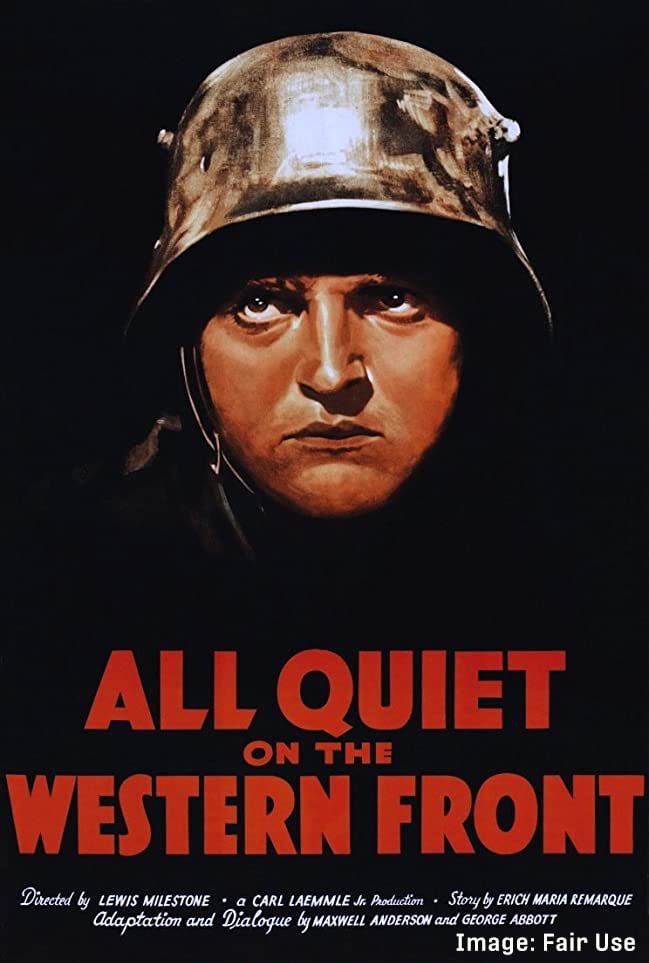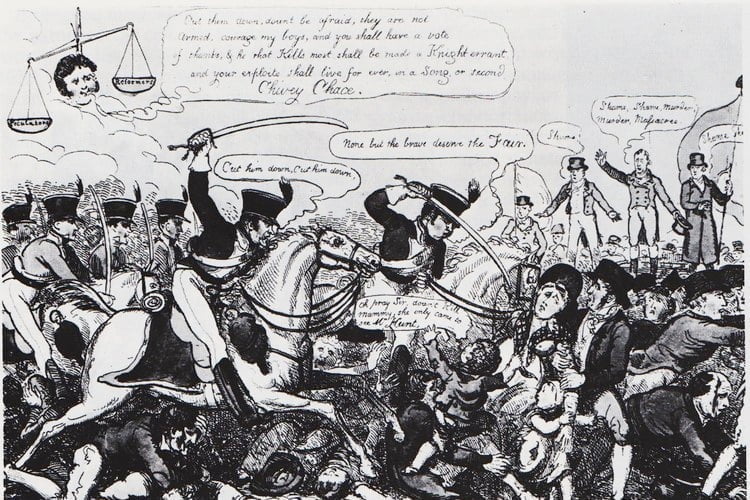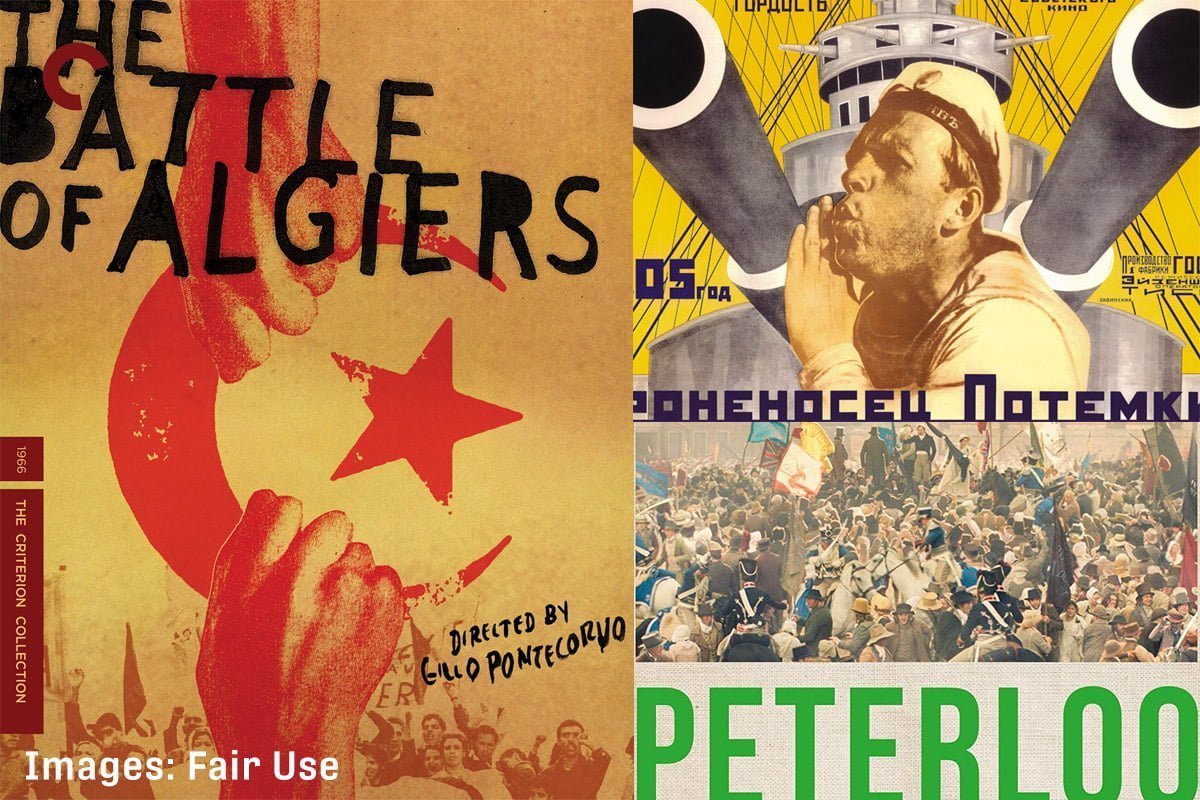With most people trapped at home for the next few weeks (or longer), many will be wondering what to watch on TV, given that most other leisure options are now unavailable. Most of what is on offer is mindless rubbish. Nothing wrong with that, of course, but no doubt Socialist Appeal readers will be looking for something a bit more political to occupy the long hours.
So, in the first of a series of articles, we will be pointing comrades towards some of the more interesting politically orientated films on offer. This is certainly not a guide to the best political films ever made overall, since many are not available on DVD or on streaming services (we wonder why). So we will focus on those available during this quarantine period.
Of course any feedback or suggestions are welcome, so that we can continue to provide some useful pointers on what can be watched if you dig hard enough.
At this point it is also worth noting that many streaming services are offering 30-day trial free periods, which you might wish to take advantage of. Also note that all sorts of things can be found lurking on YouTube for free.
Some of the choices here are obvious, others rather less so at first viewing. So here we go – and in no particular order…
All quiet on the Western front (1930 – Universal)
 One of the best anti-war films ever made, Lewis Milestone’s classic film about a group of German soldiers on the front line during World War One still packs an impact. Costing over a million dollars to make and starring a young Lew Ayres, the film of Erich Maria Remarque famous book, was quickly banned in a number of countries – including Germany under Hitler – but rightly won two Oscars. The heartbreaking final scene has never been bettered for its impact and the film has not aged despite being over 90 years old.
One of the best anti-war films ever made, Lewis Milestone’s classic film about a group of German soldiers on the front line during World War One still packs an impact. Costing over a million dollars to make and starring a young Lew Ayres, the film of Erich Maria Remarque famous book, was quickly banned in a number of countries – including Germany under Hitler – but rightly won two Oscars. The heartbreaking final scene has never been bettered for its impact and the film has not aged despite being over 90 years old.
Battle of Algiers (1966 – Cult Films/Criterion)
Gillo Pontecorvo’s film about the Algerian uprising against the colonial domination of France has justly achieved considerable fame since its release in the late 1960s. Originally intended as a commercial project with Paul Newman in the lead, it soon became the documentary style film that we all know.
Using a non-professional cast – apart from Jean Martin who plays the French colonel – the film seems like a documentary but in fact contains no documentary footage at all. Yet the film is so accurate that it has been studied by anti-colonialists through the decades as well as earning a screening by the US Pentagon, keen to show its military staff what to expect from those they wish to dominate.
The film gains much from avoiding making its protagonists too heroic or too villainous (in fact Jean Martin’s character is strangely sympathetic) so that the final 15 minutes of the film is able to have the emotional impact it intended. This is a political film for political people.
Dr Strangelove (or how I learned to stop worrying and love the bomb) (1964 – Criterion)
Stanley Kubrick’s black comedy presents a still-relevant attack on the madness of the nuclear bomb that is both extremely funny and deeply disturbing. With Peter Sellers playing three roles and backed up by the likes of Sterling Hayden (playing the maddest of mad generals) and George C. Scott (who is almost as crazy) the film’s best scenes have become justly famous.Had this film been made a few years earlier, the studio would have stopped it and put Kubrick straight into blacklist hell. But this was 1964 and the times they were a changin’.
In any case the film was a huge hit, drawing on the paranoia fears over the Cuban missile crisis of a few years earlier, and it enabled the director/producer to get the funding needed from MGM for a little science fiction film to be shot in England (as was incredibly Dr. Strangelove) called ‘2001: a Space Odyssey. Without wishing to spoil things for those who have never seen this film, the final sequence will ensure that you never think about Vera Lynn and “We’ll meet again” in the same way ever again.
Seconds (1966 – Paramount/Eureka!/Masters of Cinema)
The third of director John Frankenheimer’s ‘paranoia’ trilogy – after The Manchurian Candidate (1962) and Seven Days in May (1964), both recommended by the way – Seconds is perhaps the most subtle of the three films. Frankenheimer takes the bland conformity of 1960s middle-class America and shows how rotten it could be at the core. The concept of a secretive company offering a new life to those with the money to pay for it – young again and doing just what you always really wanted – seems too good to be true and in the end it is.
The idea that you could escape from the boredom of corperate life and, in the case of middle-aged Arthur Hamilton (John Randolph), become a hip artist called Antiochus Wilson, must have had a resonance for the film’s lead Rock Hudson who was himself having to live a lie as a Gay man in Hollywood. In the end what the company has to offer the newly created Wilson, thanks to unexplained surgery techniques, simply doesn’t work out. However the company has become only interested in how Wilson can get new clients to keep the cash flow going. When that doesn’t work out, the true meaning of the film’s title becomes all too obvious.
Peterloo (2018 – OneUK/Amazon Prime)
 Mike Leigh’s film about the Peterloo massacre in Manchester in August 1819 goes out of its way to depict in accurate details the build up to the event and the political discussions that developed around it. The film shows the appalling conditions that existed in what was becoming one of the most industrialised cities in England and how radical thinkers began to debate how to resolve it.
Mike Leigh’s film about the Peterloo massacre in Manchester in August 1819 goes out of its way to depict in accurate details the build up to the event and the political discussions that developed around it. The film shows the appalling conditions that existed in what was becoming one of the most industrialised cities in England and how radical thinkers began to debate how to resolve it.
Taking the struggle onto the political plane quickly enrages the establishment – both in Manchester and in London – which sets in motion a series of repressive actions that would lead to terrible bloodshed and repression. Peterloo is part of our history and this film deserves to be seen as widely as possible.
Battleship Potemkin (1925 – BFI)
Of all the political films of the last century this is perhaps the most famous. Eisenstein’s 1925 classic put Soviet cinema firmly on the map with its documentary style of filmmaking, using methods that had rarely been seen before.
Its impact was so great that the British censors, fearing that workers would copy the stand taken by the Russian revolutionaries, banned the film from UK screens for decades. No doubt the establishment had taken note of Leon Trotsky’s words that the film could serve as as an insurrectionary primer for the proletariat of Britain. When the film opened in Berlin in 1926, actress Mary Pickford was so overwhelmed by the film that her hand froze to the umbrella she was holding. Battleship Potemkin is political cinema at its very best and should be seen by all.
Culloden/The War Game (1964/5 – BFI)
In 1964, maverick filmmaker Peter Watkins set about producing an hour long ‘mockumentary’ about the infamous Battle of Culloden, shooting it as if a BBC film crew had somehow turned up to film the conflict in which the English brutally crushed the Scottish forces back in 1746. The huge impact of this film when shown on BBC TV enabled Watkins to apply the same documentary-style method to the subject of a film about a nuclear attack on Britain. The realistic and extremely grim tone of The War Game was enough for the BBC, under pressure from central government, to ban the film from TV screens until the 1980s.
Ironically the upshot of this was that the film was screened in cinemas in the UK and US – winning an Oscar in 1967 – and would be shown in 16mm form by left groups and campaigning organisations up and down the country for many years after. Indeed this author saw the film at an LPYS branch meeting in the 1970s. Both films depict the real horror of warfare and show the true face of the ruling class. Those idiots in parliament who are so keen to “press the button” should be forced to watch The War Game and understand the consequences of their actions. Both films can be found together on a BFI Bluray/DVD release.
Novecento/1900 (1976 – Eureka!/Masters of Cinema)
After the international (and hugely controversial) hit of 1972 that was Last Tango in Paris, director Bernado Bertolucci could make virtually anything he wanted given the amount of Hollywood cash that was now available. So it was that Paramount pictures opened its chequebook to producer Alberto Grimaldi and waited for the result – and the Last Tango-level profits – to roll in. An Italian epic called 1900 (Novecento) about two families – one rich, one poor – between the two wars, they were duly promised.
A huge cast headed by the three hottest young actors around – Robert De Niro, Gerard Depardieu and Dominique Sanda – backed up by the likes of Burt Lancaster, Donald Sutherland, Alida Valli, Sterling Hayden and more. Cinematography by Vittorio Storaro, music by Ennio Morricone. What could possibly go wrong? “It’s a six-hour long Marxist epic!”, were the words that alerted Paramount to what they had paid for. Panic set in. The producer put together a 3-hour cut for the US which was quickly the subject of a court case as Bertolucci sought to protect his film. A compromise was reached whereby a 4-hour plus edit was skilfully produced by the director, to be shown in two parts, which is how this author saw it in 1978.
Years later the longer Italian cut of 315 minutes was finally made available in both English and Italian languages (the former sounds more realistic, although most of the cast spoke English and were dubbed) and it is this version which is now generally available, again presented in two parts as intended. This is a superb film that at the end shows the revolutionary uprising of the Italian masses after the defeat of fascism and how they were betrayed. Note however that the film is quite explicit both sexually and as regards violence (not least towards the end of Act 1) and fully deserves its 18 certificate. Viewers should bear this in mind before watching.
Coming up shortly…
- Reds
- Land and Freedom
- Once upon a time in the West
- Heaven’s Gate
- Blue Collar
- La Grande Illusion
- Plague of the zombies
- 10 days that shook the world
- 3 days of the condor
- Missing
- Harlan County, USA
- Rosa Luxemburg
- If…
- Medium Cool
- I, Daniel Blake
…and more!






